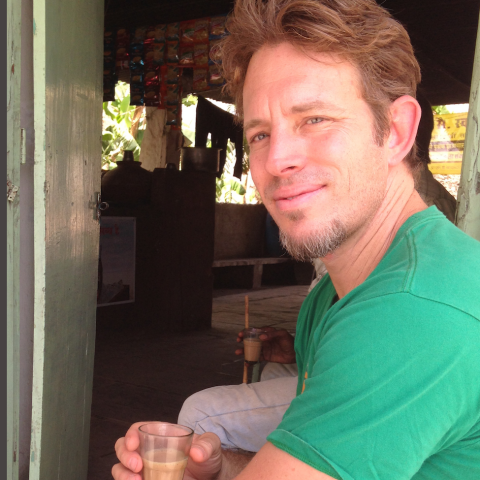Erik Wibbels
Erik Wibbels is the Presidential Penn Compact Professor of Political Science, the founder of DevLab@Penn and member of Penn’s Development Research Initiative. His research focuses on development, redistribution and political geography and has been published by Cambridge University Press and top journals. Current major projects include research on the human impact of US deportations of Central Americans; the Machine Learning for Peace project, a big data approach to measuring and forecasting dynamics in civil society at high frequency; two impact evaluations on local governance projects in Cambodia; and an initiative with the World Bank to understand the impact of refugees on communities around the world.
In his role with DevLab@Penn, Wibbels also works with governments, international donors, and local partners to improve the design and evaluation of development programming and engage in policy-relevant research around the world. He regularly organizes and participates in conferences and workshops that bring together policy experts, academics and civil society through the INSPIRES network, and he recently co-edited Decentralized Governance and Accountability: Academic Research and the Future of Donor Programming with Cambridge University Press.
As a part of its educational mission, DevLab@Duke and PDRI work with Post-Doctoral Fellows, graduate and undergraduate students through a combination of applied research, internships and courses. Wibbels is currently working with students on projects in Cambodia, El Salvador, Guatemala, Nepal, Serbia, Tanzania, Uganda, and several countries in Central Asia.
Selected Publications
(2020.) “Precarious gains: social mobility and volatility in urban slums.” World Development 132, 105001.
Nearly one sixth of the global population lives in urban “slums” – areas characterized by inadequate infrastructure and tenure security. This figure continues to grow as developing countries rapidly urbanize. Yet, the implications of these trends for urban poverty and social mobility are not well understood. While some argue slums provide temporary housing for rural migrants as they accumulate savings and eventually move to middle class neighborhoods, others argue slum residents are stuck in poverty traps. Deficits in longitudinal data on slums make it difficult to analyze the extent of social mobility. We iterate between satellite analysis and field knowledge to build an original sample of more than 9000 slum households across more than 200 slums from three Indian cities. To address the limitations inherent in cross-sectional data, we employ multiple methods and triangulate findings across household survey data, neighborhood focus group data, longitudinal satellite data, and in-depth qualitative interviews. While no one analysis is definitive on its own, all of these results point to the same conclusion: slum residents are neither stuck in poverty traps nor are they on a steady trajectory to joining the middle class. Movement out of neighborhoods, particularly to non-slum neighborhoods, is rare. Most households experience upward mobility within their neighborhoods, but the extent of improvement is capped at a low level, and, as opportunities increase, volatility increases in parallel. Plateauing and volatility are features present in low-end, and even more, in high-end slums. Engendering better livelihood opportunities requires reducing downward mobility while addressing the causes of plateauing upward mobility.
(2019) “Combining satellite and survey data to study Indian slums: evidence on the range of conditions and implications for urban policy.” Environment and Urbanization 31(1), 267–292.
(2023). “Informal Work, Risk, and Clientelism: Evidence from 223 Slums across India.” British Journal of Political Science, 53(1), 1-24.
Most of the poor in the developing world work in the informal economy, that is, in occupations that take place outside of the legal system of taxing, spending, and regulating. This article examines how informal work impacts the policy and electoral preferences of the poor. We emphasize the importance of the risks inherent in informal employment in shaping the responsiveness of citizens to clientelism and their policy and voting preferences. Since most informal workers are not covered by (formal) social insurance, they prefer material goods and candidates that produce targeted, clientelistic benefits rather than programmatically delivered insurance that is unlikely to reach them. As a result, we argue that informal workers are more likely to rely on clientelistic relations as a means of hedging risks than are formal workers; prefer policies that are delivered clientelistically via political mediators rather than programmatic solutions; and prefer clientelistic over programmatic local candidates. Our findings elucidate why the preferences of poor informal workers often diverge from those assumed by standard models of social insurance and have important implications for the political economy of social policy in a world where billions work outside work-based tax-transfer systems.


